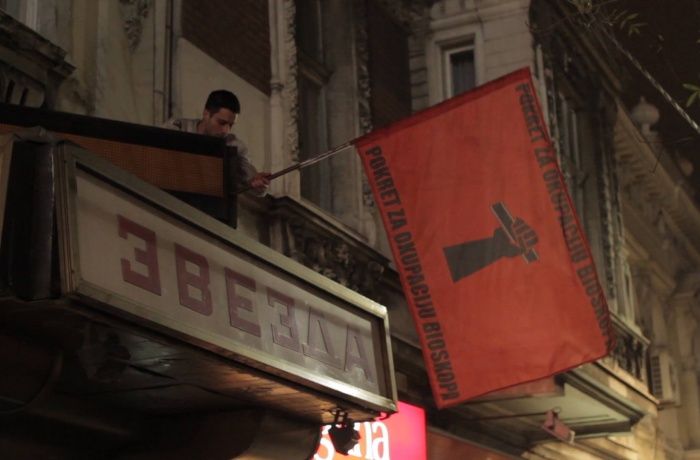
The development of public space started in Ukraine relatively recently, and to a large extent it involves rethinking the Soviet heritage. In Soviet times, art and education were fully in service of the state ideology. Favourable conditions were created to develop and promote culture as an ideological channel, because art was supposed to be accessible to a wide audience. Extensive networks of cultural institutions representing art, cinemas and houses of culture, appeared in almost every town or village. Today, a significant part of these facilities are derelict. And even if houses of culture mostly still function at least in some way, cinemas are meanwhile being destroyed en masse, turned into stores or churches, or just crumbling from neglect.
These are public spaces that used to be deprived of the possibility of free gatherings and uncensored expression, because they were strictly regulated. In Soviet times, such functions of public spaces as leisure and community building were instrumentalised by the state to spread propaganda and control the citizens. Many facilities of the cultural infrastructure have remained in Ukraine since Soviet times, and they can and should transform from ‘quasi-public spaces’ (as in the Soviet period) into contemporary culture and art centres.
The purpose of the discussion is to talk about ways in which activists can reclaim public spaces.
Participants:
Nastia Ponomariova, architect, urbanist, researcher, co-founder of the Urban Curators urban agency. She works to transform former industrial territories from the bottom up, engages in temporary transformations of former socialist cities, and works with the cultural and social aspects of urban practices.
Arthur Aroyan, architect, photographer, researcher into local cultures. He co-founded the Poltava Art Territory creative union, and is a member of the City Lab urban platform and the Save Poltava NGO.
Polina Kelm is a Ukrainian documentary filmmaker. Since May 2018, she has participated in the organisation of protests in support of Oleg Sentsov, and since October she has been a member of the activist movement in support of the Kinopanorama and Ukraine cinemas in Kyiv.
Mykola Vohnyk is an enthusiast who worked in the restoration of the Kyiv Cycling Track (2014-17) and now focuses on its development, popularization of cycling culture and cycling sports. He represents the participant method of social research.
Moderator: Yevhenia Moliar, art critic, member of the DE NE DE initiative.